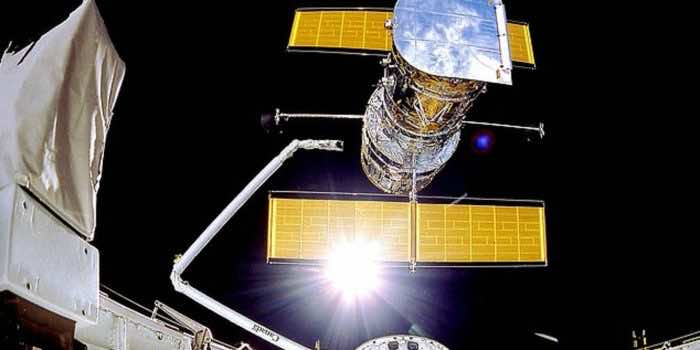According to NASA, Elon Musk could help save Hubble. The agency will study the possibility of executing a private astronaut mission with SpaceX to extend the iconic telescope’s lifespan.
Hubble is expected to eventually fall into the Earth’s atmosphere and burn up, most probably in the 2030s.
The telescope has lost altitude by about 15 miles (25km) since 2009.
‘You’d add easily 15 to perhaps 20 years of orbit life to the mission if we could achieve that altitude,’ said Hubble project manager Patrick Crouse during a press conference.
The feasibility study will determine how Musk’s SpaceX might send a commercial crew in one of its Dragon capsules to service some of Hubble’s hardware. This could include replacing the gyroscopes used to point the telescope at stars and galaxies.
The famous observatory has helped in making 1.5 million observations, leading to the publication of some 19,000 scholarly research papers.

This year, Hubble imaged the single most distant star in the universe and the largest comet ever identified.
‘I want to be absolutely clear, we’re not making an announcement of a date, or that we’d definitely go forward with a plan like this. But we want to have a study to see really what would be feasible,’ he said.
‘It’s in a different orbit, different mass, they’re different vehicles. The details of proximity operations — that’s going to be a little bit different; it’ll all be unique to the telescope,’ said SpaceX’s Jessica Jensen.
‘We’re just looking forward to studying what’s possible and what’s needed and working all this in coordination with NASA.’
They are hoping to attach a ‘capture ring’ to Hubble by the last shuttle mission that may allow a Dragon capsule to lock on and push the observatory upwards.

‘We certainly wouldn’t anticipate (a Dragon mission) being at the level of complexity of servicing missions that were accomplished with the shuttle and NASA astronaut crews from the past, but we are excited to look at what opportunities are available with our commercial partners,’ said Crouse.
The study will go on for six months, after which NASA officials will determine whether it is a good idea to start planning such a mission.
‘We won’t last forever, but we’re trying to last as long as we can,’ Crouse added.


